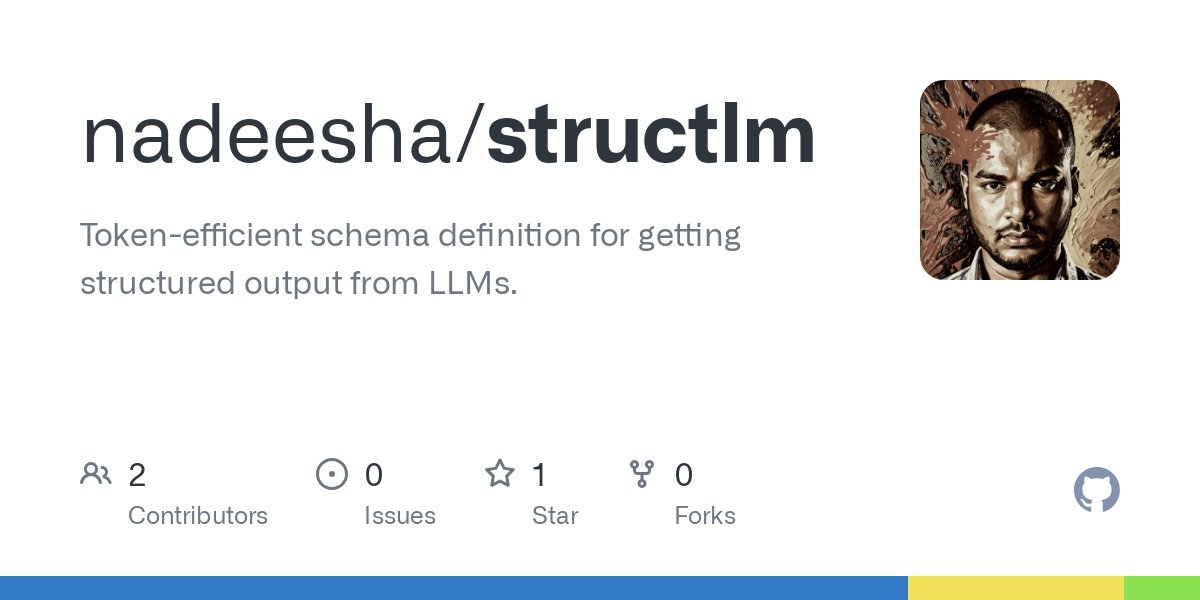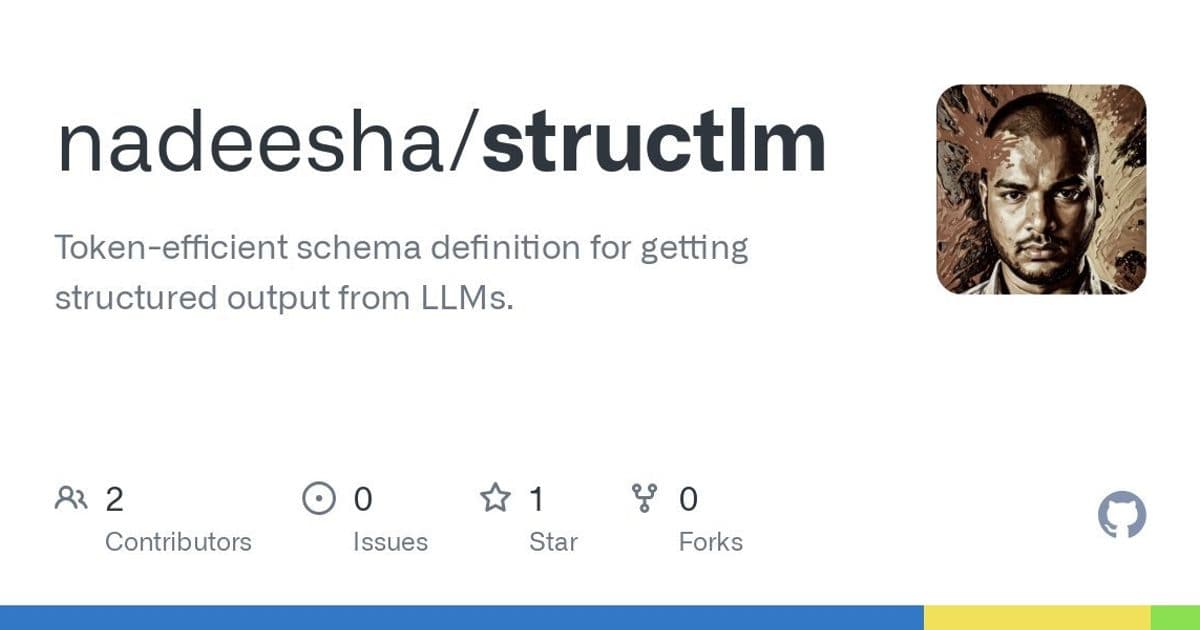StructLM introduces a token-efficient schema language that cuts LLM prompt overhead by up to 58% compared to JSON Schema while maintaining accuracy. This TypeScript-native library offers Zod-like validation and type safety for AI outputs, revolutionizing how developers extract structured data from language models.
StructLM: The Token-Slimming Schema Revolution for LLMs

As developers increasingly rely on large language models (LLMs) for structured data extraction, the token bloat of JSON schemas has become a silent budget killer. Enter StructLM – a groundbreaking open-source library that reimagines schema definition for the AI era. By introducing a proprietary notation that's 46-58% more token-efficient than traditional JSON Schema, StructLM delivers identical (or better) accuracy while drastically reducing LLM costs.
Why Token Efficiency Isn't Optional
When schemas consume hundreds of tokens in every prompt, costs compound rapidly:
// Traditional JSON Schema (414 tokens avg)
{
"type": "object",
"properties": {
"name": {"type": "string", "minLength": 2},
"email": {"type": "string", "format": "email"}
// ...
}
}
// StructLM equivalent (222 tokens avg)
{ name: string /* name=>name.length>=2 */, email: string /* email=>email.includes("@") */ }
Benchmarks with Claude 3.5 Haiku show dramatic reductions:
| Schema Complexity | JSON Schema Tokens | StructLM Tokens | Reduction |
|---|---|---|---|
| Simple Object | 414 | 222 | 46.4% |
| Complex Object | 1,460 | 610 | 58.2% |
| Custom Validations | 852 | 480 | 43.7% |
"This isn't just about cost savings," explains the maintainer. "Leaner schemas reduce cognitive load on LLMs, potentially improving output quality – our complex object benchmarks show StructLM actually outperformed JSON Schema by 0.4%."
Developer Experience First
Type-Safe & Familiar Syntax
StructLM adopts a TypeScript-idiomatic approach:
import { s, Infer } from 'structlm';
const userSchema = s.object({
name: s.string().validate(name => name.length > 1),
email: s.string().validate(e => e.includes('@')),
age: s.number().optional(),
tags: s.array(s.string())
});
type User = Infer<typeof userSchema>; // Full TS inference
Integrated Validation Engine
Validations serialize directly into schema hints:
// Output: { email: string /* e=>e.includes("@") */ }
console.log(userSchema.shape.email.stringify());
Real-World LLM Integration
const prompt = `Extract contacts from: "${text}"
Output: ${contactSchema.stringify()}`;
// After LLM response
const data = contactSchema.parse(llmOutput); // Throws validation errors
Under the Hood: Schema Smackdown
StructLM's advantages become undeniable in complex scenarios:
Nested Data Extraction
const apiSchema = s.object({
users: s.array(s.object({
id: s.number(),
profile: s.object({
contact: s.object({
email: s.string().validate(e => /^[^\s@]+@[^\s@]+\.[^\s@]+$/.test(e))
})
})
}))
});
Versus JSON Schema
{
"type": "object",
"properties": {
"users": {
"type": "array",
"items": {
"type": "object",
"properties": {
"profile": {
"properties": {
"contact": {
"properties": {
"email": {"type": "string", "format": "email"}
}
}
}
}
}
}
}
}
}
The StructLM version uses 68% fewer tokens while including stronger regex validation.
The New Calculus for LLM Development
StructLM shifts the economics of LLM applications:
- Cost Reduction: Slash token usage in every schema-containing prompt
- Enhanced Accuracy: Cleaner schemas reduce LLM confusion
- Unified Validation: Single source of truth for both LLM instructions and runtime checks
As one early adopter noted: "We cut our Claude 3.5 token consumption by 200,000 tokens daily just by migrating extraction schemas – that's real money."
With zero dependencies and browser/Node.js support, StructLM signals a maturation of LLM tooling – where efficiency and developer experience finally take center stage. As AI increasingly becomes infrastructure, such optimizations will separate sustainable applications from those drowning in API costs.
{{IMAGE:5}}

Comments
Please log in or register to join the discussion